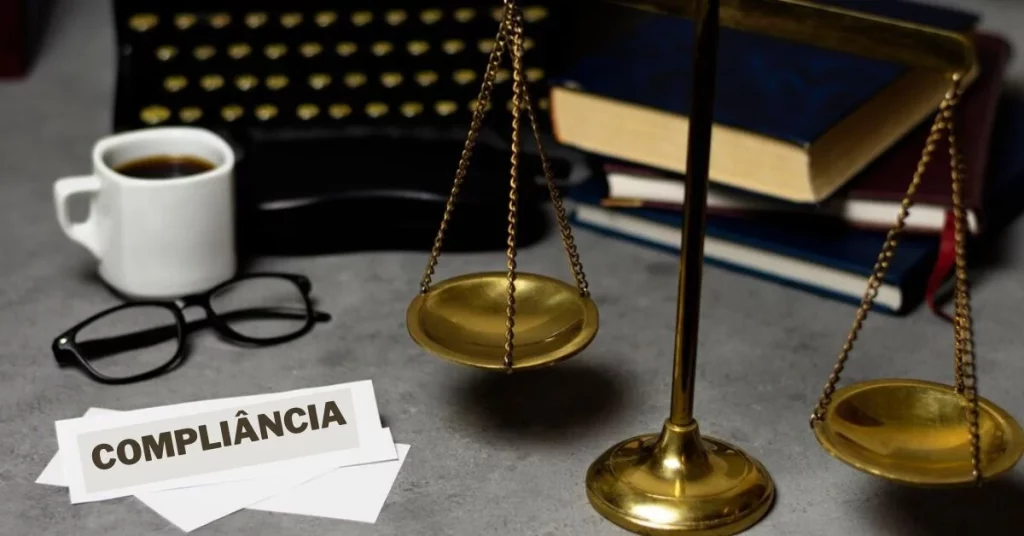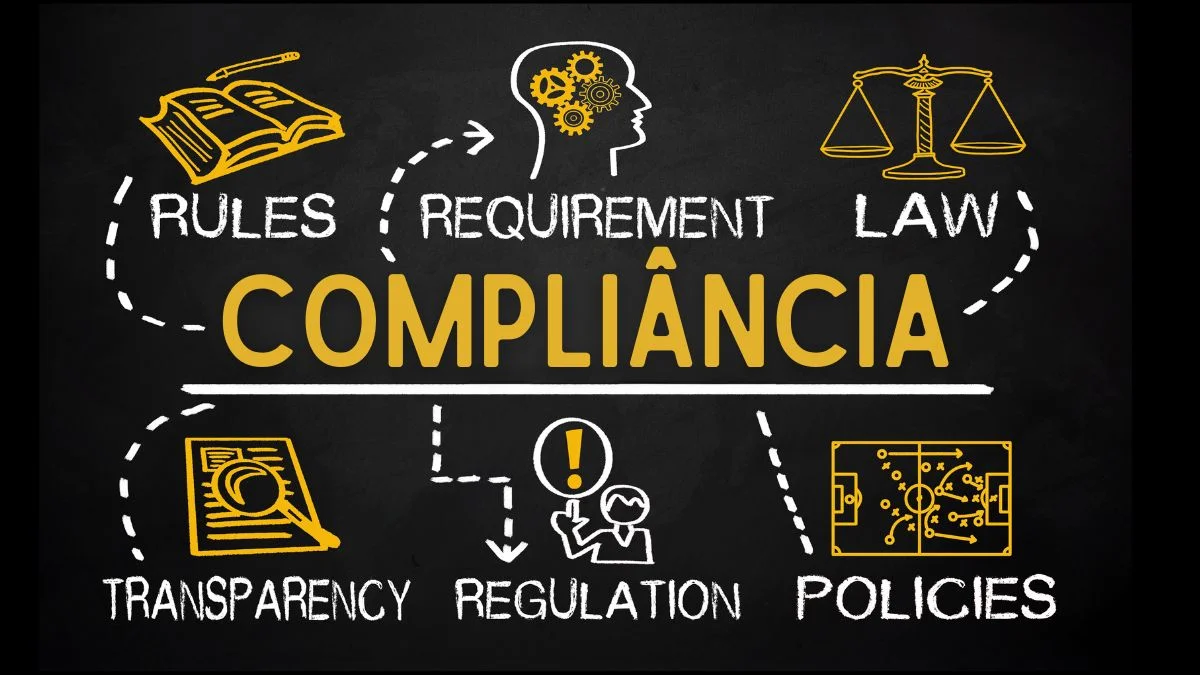Compliância refers to a company’s adherence to laws, regulations, guidelines, and specifications relevant to its business. It ensures ethical and legal operations.
Compliância is vital for any business aiming to maintain integrity and avoid legal issues. It involves implementing processes and systems that ensure compliance with industry standards and governmental regulations. Companies must regularly update their compliance protocols to adapt to new laws and market changes.
Effective compliância reduces the risk of fines, legal penalties, and reputational damage. It also builds trust with customers, investors, and partners. By prioritizing compliância, businesses demonstrate their commitment to ethical practices and sustainable growth. This proactive approach not only safeguards the company but also fosters a positive corporate image.
Introduction To Compliance
Compliance means following rules and laws. Businesses must follow these to work well. It helps avoid fines and keep trust.
Importance In Business
Compliance is crucial for businesses. It keeps them safe from legal trouble. Companies face big fines if they don’t follow laws.
Trust is important in business. Following rules builds trust with customers and partners. This trust helps businesses grow.
Good compliance practices also ensure ethical behavior. Companies that act ethically attract more clients and employees.
Key Principles
Several key principles guide compliance. These principles help businesses stay on track.
- Integrity: Always act honestly and fairly.
- Transparency: Be clear and open in all dealings.
- Accountability: Take responsibility for actions and decisions.
- Confidentiality: Protect sensitive information.
These principles ensure businesses operate smoothly. They also help maintain a good reputation.

Corporate Governance Basics
Understanding corporate governance is vital for any business. It ensures that a company operates smoothly, transparently, and ethically. Here, we will dive into the basics of corporate governance, exploring its definition, scope, and core components.
Definition And Scope
Corporate governance refers to the system of rules, practices, and processes. These guide and control a company. It involves balancing the interests of stakeholders. Stakeholders include shareholders, management, customers, suppliers, financiers, government, and the community.
The scope of corporate governance is broad. It covers every aspect of management. It includes action plans, internal controls, performance measurement, and corporate disclosure. Good governance ensures accountability, fairness, and transparency.
Core Components
Effective corporate governance is built on several key components. Here are the core components:
- Board of Directors: The board oversees the company’s affairs. They make critical decisions.
- Management: Executives and managers implement the board’s strategies. They handle day-to-day operations.
- Shareholders: They own the company. They have voting rights on major issues.
- Auditors: They ensure financial statements are accurate and truthful.
- Regulations: These are laws and guidelines that companies must follow.
A strong governance framework includes clear policies and procedures. It also requires regular reviews and updates.
Companies often form committees. These focus on specific areas such as audit, risk, and remuneration. Each committee has a distinct role in governance.
The table below summarizes the core components:
| Component | Role |
|---|---|
| Board of Directors | Oversees company affairs and decisions |
| Management | Implements strategies and handles operations |
| Shareholders | Own the company and vote on issues |
| Auditors | Ensure financial accuracy |
| Regulations | Provide legal guidelines |
Regulatory Framework
The regulatory framework for compliance is essential. It ensures that organizations follow laws and guidelines. Compliance helps companies avoid legal issues and maintain their reputation. This section explores global standards and local regulations.
Global Standards
Global standards set the benchmark for compliance worldwide. These standards ensure that businesses operate ethically and legally. Some key global standards include:
- ISO 19600: Provides guidelines for compliance management systems.
- ISO 37001: Focuses on anti-bribery management systems.
- GDPR: Protects data privacy and security in the European Union.
These standards help maintain a level playing field. They ensure that all businesses follow the same rules. Adhering to global standards can build trust with clients and partners.
Local Regulations
Local regulations are laws and guidelines specific to a country. They ensure that businesses comply with national standards. Local regulations vary from one country to another. Some examples include:
| Country | Regulation | Description |
|---|---|---|
| United States | Sarbanes-Oxley Act | Ensures financial transparency and accountability. |
| Brazil | Lei da Empresa Limpa | Focuses on anti-corruption and ethical business practices. |
| Japan | Financial Instruments and Exchange Act | Regulates securities and financial markets. |
Following local regulations is crucial for businesses. It ensures they operate within the legal framework of their country. Failure to comply can result in severe penalties and damage to reputation.
Roles And Responsibilities
Compliance is essential for every organization. It ensures adherence to laws and regulations. Understanding the roles and responsibilities of key players in compliance is crucial. This section covers the responsibilities of the Board of Directors and Compliance Officers.
Board Of Directors
The Board of Directors has a pivotal role in overseeing compliance. They ensure the company follows all rules and regulations. The board must understand and support the compliance program. Their responsibilities include:
- Setting the tone for compliance culture
- Approving compliance policies and procedures
- Reviewing reports on compliance issues
- Ensuring resources for effective compliance
- Monitoring the effectiveness of the compliance program
Compliance Officers
Compliance Officers are the backbone of the compliance program. They ensure the organization adheres to all laws. Their duties include:
- Developing and implementing compliance policies
- Conducting regular audits and risk assessments
- Providing training for employees on compliance
- Investigating any compliance breaches
- Reporting compliance issues to the board
Both the Board of Directors and Compliance Officers must work together. Their collaboration ensures a robust compliance environment. Their roles and responsibilities are distinct yet intertwined.
Risk Management Strategies
Effective risk management is vital for any organization. It helps avoid unexpected troubles. Compliância involves identifying, assessing, and controlling risks. Here, we discuss key strategies for risk management.
Identifying Risks
Identifying risks is the first step. This involves recognizing potential threats. Common risks include financial, operational, and compliance risks.
- Financial Risks: Losses due to market fluctuations.
- Operational Risks: Failures in internal processes.
- Compliance Risks: Legal penalties from non-compliance.
Use tools like SWOT analysis. This helps identify Strengths, Weaknesses, Opportunities, and Threats.
Mitigation Techniques
Once risks are identified, the next step is mitigation. Mitigation involves reducing the impact of risks. Here are common techniques:
| Technique | Description |
|---|---|
| Avoidance | Eliminate the risk entirely. |
| Reduction | Minimize the impact of the risk. |
| Transfer | Shift the risk to a third party. |
| Acceptance | Accept the risk and prepare a response plan. |
Effective risk management ensures business continuity and compliance. It also safeguards against unforeseen challenges.

Ethics And Integrity
Ethics and integrity form the bedrock of any successful compliance program. They guide the actions and decisions within an organization. Ensuring ethical behavior helps build trust with stakeholders. It also protects the organization from legal and reputational risks.
Creating Ethical Culture
An ethical culture is essential for compliance. It starts from the top. Leaders must set an example of ethical behavior. Employees follow their lead. Here are some key steps:
- Leadership commitment: Leaders must show they value ethics.
- Open communication: Encourage employees to speak up about ethical concerns.
- Training programs: Provide regular ethics training to employees.
These steps help embed ethics into the organization’s culture. They ensure everyone understands their role in maintaining ethical standards.
Code Of Conduct
A strong Code of Conduct is vital. It outlines the organization’s ethical standards and expectations. It serves as a guide for employees. Here is what a good Code of Conduct should include:
- Clear policies: Detail acceptable and unacceptable behaviors.
- Reporting mechanisms: Provide ways for employees to report violations.
- Consequences: Explain the consequences of unethical behavior.
- Regular updates: Keep the Code current with evolving standards.
Having a clear Code of Conduct helps employees make ethical decisions. It ensures they understand the organization’s expectations.
| Code of Conduct Elements | Description |
|---|---|
| Clear Policies | Defines acceptable and unacceptable behaviors |
| Reporting Mechanisms | Ways to report unethical behavior |
| Consequences | Outlines the repercussions of violations |
| Regular Updates | Ensures the Code remains relevant |
Ethics and integrity are not just buzzwords. They are crucial for sustaining a compliant, successful organization.
Technology In Compliance
Compliance has become crucial for businesses. Technology offers effective solutions. It helps in automating tasks and securing data.
Automating Processes
Automation in compliance reduces manual work. It ensures accuracy. It saves time and resources.
Key benefits of automating compliance processes include:
- Faster processing times
- Reduced human error
- Consistent application of rules
Compliance software tools can track and report activities. They ensure companies meet regulatory standards.
Data Security
Data security is vital for compliance. Protecting sensitive information is necessary. Technology helps secure data.
Effective data security measures include:
- Encryption of data
- Access control mechanisms
- Regular security audits
Using these methods ensures data integrity. It protects against breaches. It keeps compliance intact.
| Technology | Benefit |
|---|---|
| Automation | Reduces manual tasks and errors |
| Data Encryption | Protects sensitive information |
| Access Control | Ensures only authorized access |
| Security Audits | Maintains system integrity |
Case Studies
Compliância, or compliance, is crucial for businesses. Case studies offer real-world insights. They showcase both successes and challenges. This section explores two key aspects of compliância case studies.
Successful Implementations
Successful compliância implementations prove its value. Below, we discuss three standout cases:
| Company | Industry | Outcome |
|---|---|---|
| ABC Corp | Finance | Reduced compliance costs by 20% |
| XYZ Ltd | Healthcare | Improved data security |
| 123 Inc | Retail | Enhanced customer trust |
Lessons Learned
Every compliância journey teaches valuable lessons. Here are some key takeaways:
- Regular Training: Staff must receive ongoing compliance training.
- Clear Policies: Well-defined policies guide employee actions.
- Technology Integration: Use tech solutions for efficient compliance management.
ABC Corp found that regular training sessions improved compliance adherence. XYZ Ltd emphasized the need for clear and accessible policies. 123 Inc highlighted the importance of integrating technology to streamline processes.
Future Trends
The world of Compliância is constantly evolving. As businesses adapt, they face new challenges and find innovative solutions. This section delves into the future trends shaping the industry.
Emerging Challenges
Businesses face increasing regulatory requirements. These regulations vary by region and industry. Staying compliant is becoming more complex.
- Data Privacy Laws: New laws are emerging globally.
- Cybersecurity Threats: Cyber-attacks are increasing in frequency and sophistication.
- Global Supply Chain Issues: Managing compliance across borders is challenging.
Companies must stay ahead of these challenges. Proactive measures ensure compliance and mitigate risks.
Innovative Solutions
Emerging technologies offer innovative solutions to compliance challenges. These solutions streamline processes and ensure accuracy.
| Technology | Benefits |
|---|---|
| AI and Machine Learning | Automate compliance monitoring and detect anomalies. |
| Blockchain | Ensure transparency and secure record-keeping. |
| Cloud Computing | Centralize compliance data and improve accessibility. |
Adopting these technologies is crucial. They help businesses stay compliant and competitive.

Frequently Asked Questions
What Is Compliance In Business?
Compliance in business means adhering to laws, regulations, and internal policies. It ensures ethical behavior and minimizes risks. Companies must implement compliance programs.
Why Is Compliance Important?
Compliance is crucial for avoiding legal penalties and maintaining reputation. It ensures ethical standards and builds trust with stakeholders. It also fosters a positive workplace culture.
How Do Companies Ensure Compliance?
Companies ensure compliance through training, audits, and policies. They establish compliance programs and appoint officers. Regular monitoring and updates are essential for maintaining standards.
What Are Common Compliance Risks?
Common compliance risks include fraud, data breaches, and regulatory violations. Companies face financial penalties and reputational damage. Effective compliance programs mitigate these risks.
Conclusion
Embracing compliance ensures your business stays within legal boundaries. It fosters trust, mitigates risks, and enhances reputation. Implementing strong compliance measures is essential for long-term success. Stay proactive and committed to maintaining high standards. Your dedication to compliance will drive growth and secure your company’s future.


Leave a Reply
You must be logged in to post a comment.